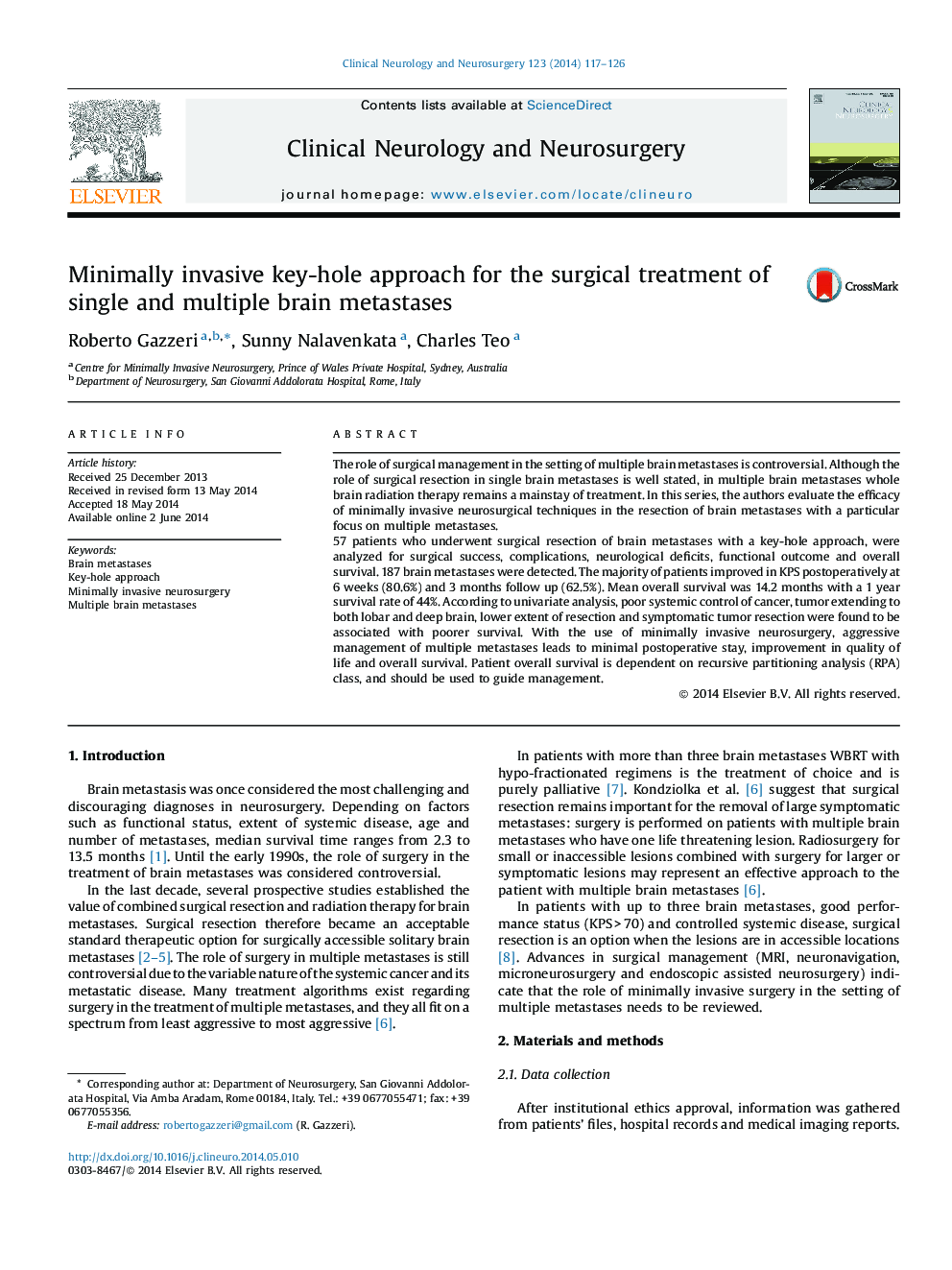| Article ID | Journal | Published Year | Pages | File Type |
|---|---|---|---|---|
| 3040174 | Clinical Neurology and Neurosurgery | 2014 | 10 Pages |
•Aggressive surgical resection with the benefit of minimally invasive techniques can stabilize neurological symptoms.•Survival benefit has been proven in the setting of multiple metastases if all metastases can be resected.•Aggressive surgical management has a place in the management of symptomatic and accessible lesions in patients with multiple metastases.
The role of surgical management in the setting of multiple brain metastases is controversial. Although the role of surgical resection in single brain metastases is well stated, in multiple brain metastases whole brain radiation therapy remains a mainstay of treatment. In this series, the authors evaluate the efficacy of minimally invasive neurosurgical techniques in the resection of brain metastases with a particular focus on multiple metastases.57 patients who underwent surgical resection of brain metastases with a key-hole approach, were analyzed for surgical success, complications, neurological deficits, functional outcome and overall survival. 187 brain metastases were detected. The majority of patients improved in KPS postoperatively at 6 weeks (80.6%) and 3 months follow up (62.5%). Mean overall survival was 14.2 months with a 1 year survival rate of 44%. According to univariate analysis, poor systemic control of cancer, tumor extending to both lobar and deep brain, lower extent of resection and symptomatic tumor resection were found to be associated with poorer survival. With the use of minimally invasive neurosurgery, aggressive management of multiple metastases leads to minimal postoperative stay, improvement in quality of life and overall survival. Patient overall survival is dependent on recursive partitioning analysis (RPA) class, and should be used to guide management.
